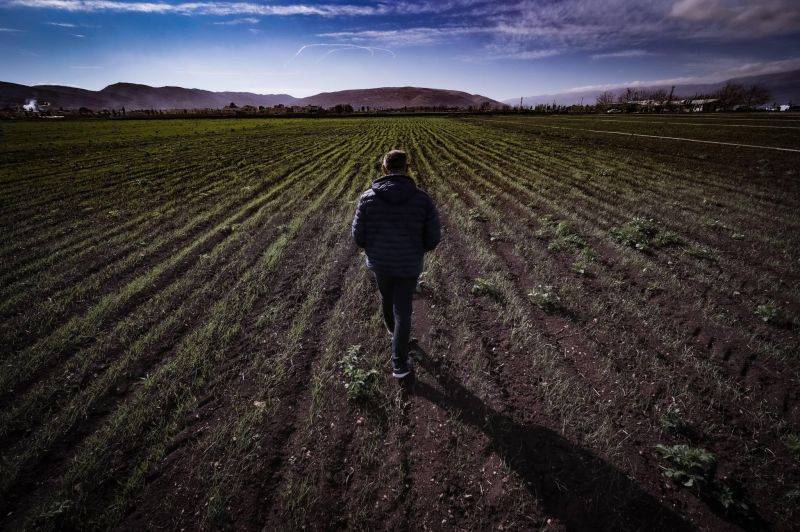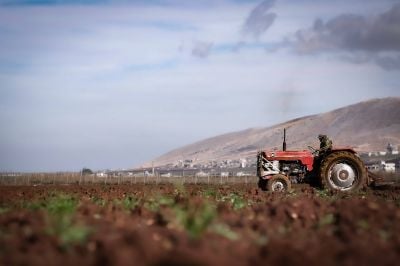
Farmland in Lebanon's Bekaa Valley, an agriculture hub. (Credit: João Sousa/L’Orient Today)
BEIRUT — Qatar will resume importing Lebanon's leafy crops following a more than yearlong ban, Qatari ambassador to Lebanon told caretaker Agriculture Minister Abbas Hajj Hassan on Thursday, the state-run National News Agency reported.
In October 2021, Qatar banned imports of mint, parsley, coriander, thyme and “mloukhieh” from Lebanon due to what the country’s Public Health Ministry said were high levels of pesticides and E. coli in analyzed samples.
On Thursday, Qatari Ambassador to Lebanon Ibrahim bin Abdulaziz Muhammad Salih Al-Sahlawi conveyed Qatar's Environment Ministry and Municipalities Ministry's approval for the receipt of leafy crop imports from Lebanon again "after the exporters applied the conditions set by the competent Qatari authorities," the NNA report stated.
Hajj Hassan, for his part, stressed "the permanent cooperation between the ministry and the embassy of the state of Qatar in Beirut for the benefit of the two brotherly peoples."
The Qatari import ban was not the only such ban imposed on Lebanon's produce in recent years. The agricultural sector was also dealt a blow when Saudi Arabia banned produce imports in 2021. The Gulf country had said that the ban was prompted by the discovery of narcotics hidden inside numerous produce shipments coming from Lebanon since the beginning of 2020. Shipments of pomegranates and other fruits were found to have been filled with millions of pills of the amphetamine captagon.
Meanwhile, farmers also have been struggling amid Lebanon’s financial crisis, due in large part to the rising cost of fuel and the expense of imported inputs such as seeds and fertilizer. While the effects of the embargoes on produce were largely mitigated by increased exports to other countries, particularly Egypt, a report by the Lebanese Center for Research and Agricultural Studies (CREAL) noted that the situation for farmers remains precarious.
